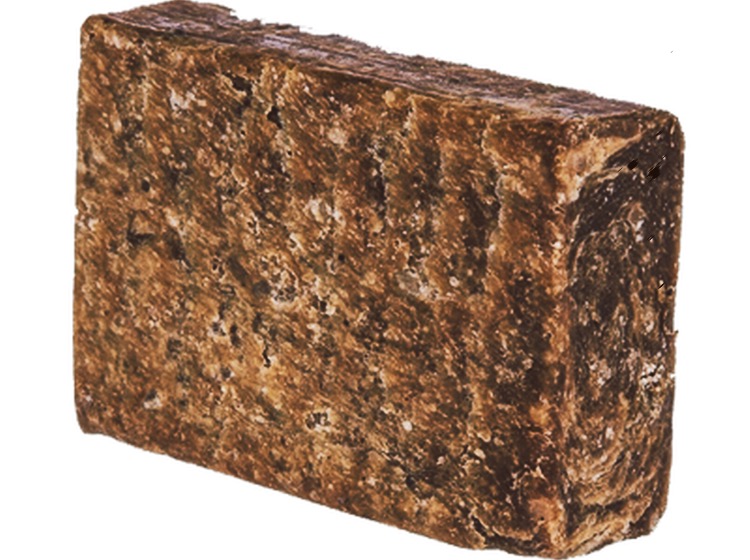
Black soap originated in the western part of Africa and is most popular in Nigeria and Ghana. It’s known as ose dudu, anago or alata samina in these regions. It’s usually touted for its benefits and skin healing properties.
Some properties:
1. Dudu osun soap, as it’s referred to in Nigeria, is safe for all skin types: dry, oily, or normal.
2. It helps to heal skin irritation/inflammation: Black soap helps to soothe irritated areas on the skin, caused by sunburns or chemical reactions.
3. Raw African black soap enhances skin texture. It helps to keep the skin soft and smooth.
4. It helps to reduce hyperpigmentation, that is, lightening dark spots, stretch marks, and acne scars.
5. Prevents loss of collagen, which helps to reduce wrinkles/fine lines; the vitamin E content aids this.
6. It aids the prevention/treatment of skin rashes; the moisture in black soap helps to keep your skin hydrated, thus preventing rashes and bumps.
How to make African black soap from scratch
While black soap can be found in many markets and even online stores, a lot of it has been modernized with exotic ingredients like olive oil and essential oils.
However, if you are curious to know how the original African black soap is made, here’s an authentic traditional recipe which is still used by black soap makers in Africa today.
The steps may look simple, but the actual process is slightly more complicated.
1. Making the base: The soap base is made by sun-drying or roasting either plantain/banana peels, cocoa pods or palm fruit husks. The ash is then grounded into a fine powder and mixed with warm water.
2. This water is filtered to remove the solid granules. After that, more ingredients like shea butter, palm oil, palm kernel oil and cocoa butter are added to moisturize and nourish it. (Read about non-toxic natural oils that soothe the skin)
3. The mixture is then stirred at intervals for about 24 hours. By then, the soap coalesces at the top. It is then scooped out and left to cure for about 2 weeks.
With these 3 steps, you can make your own black soap. However, if you can’t deal with the stress of making it, you can buy from your local market or order from a trustworthy online store.
Also, note that it is unscented and thus has an earthy smell. This is healthier as it reduces the irritation caused by harsh fragrances in beauty products.
If you’re buying from a store beware, because some brands add fragrances to boost the smell.
Other important tips to note:
– Do a skin test before fully using it, as black soap has been reported to be harsh on some skin types. To know if this natural soap works for your skin, use it on a small area for a few days. If there are no reactions, you can fully start using it. However, if you notice redness or rashes, do not use it.
– The best way to use alata samina is to rub it on a loofah or sponge. Do not use it directly on the skin as it has a rough texture and can break or irritate your skin.
If you have used black soap before, tell us your experiences in the comments!






